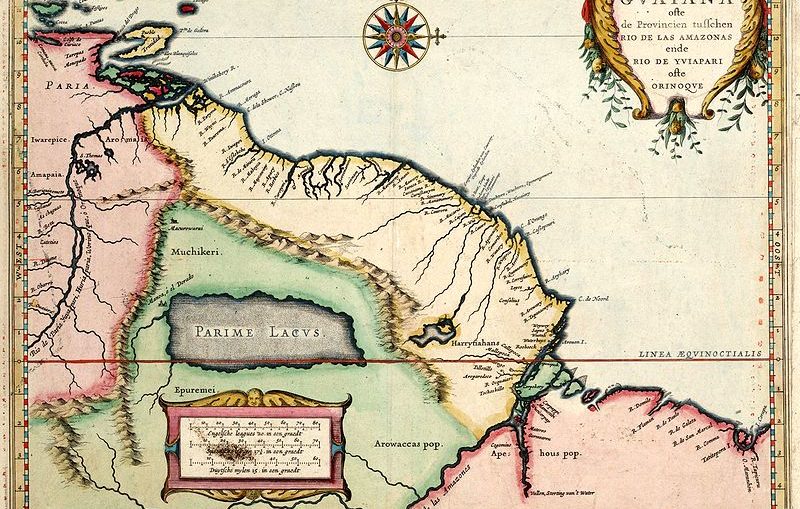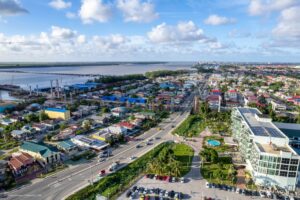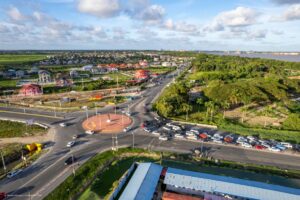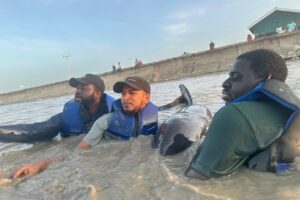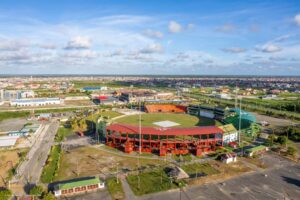Before Guyana was British Guiana, the Dutch ruled over the land. Without the contributions of the Dutch many things would not be the same including the names of our villages and towns. But have you wondered why the Dutch came to Guyana? What brought the Dutch to the then undiscovered Guyana? Was it sugar? Was it oil? Or was it gold? Why did the Dutch leave their prospering Netherlands to journey to the jungles of South America, untouched by modern civilization?
The Dutch did not come to Guyana for sugar because sugar was produced after the coffee industry collapsed. The discovery of oil in Guyana was a quite recent one in the year 2015. That leaves gold. With no rice, sugar, coffee or cotton industry to profit from, why did the Dutch come to Guyana? There was a myth that a city of gold lies in the heart of Guyana, waiting to be discovered. The Dutch, having heard rumours of such an empire made completely out of gold, wanted to investigate. They journeyed to Guyana in search of the Golden City of El Dorado in several voyages, two of which were led by Dr. Walter Raleigh.
What is El Dorado?
‘El Dorado’ is a Spanish word meaning ‘the golden one’. There are several variations to this name including El Rey Dorado meaning the ‘Golden King’ and El Hombre Dorado, which means ‘The Golden Man’. The original name was El Hombre Dorado, ‘The Golden Man’ that given by the Spanish Empire while ‘El Rey Dorado’ was used to describe a zipa or chief of the Muisca tribe. Over time, the rumours of this golden ‘zipa’ travelled to the ears of the Europeans. By then, it had evolved from a chief who bathed in gold dust, to a city, kingdom and ultimately an empire of gold.
Interesting Tip
- The Muisca people are the indigenous people of Columbia and inhabited the country before the Spanish conquest.
- The zipa is the chief of the Muisca tribe.
- The Muisca was one of the most advanced civilizations in South America including the Mayans, Aztec and Incas.
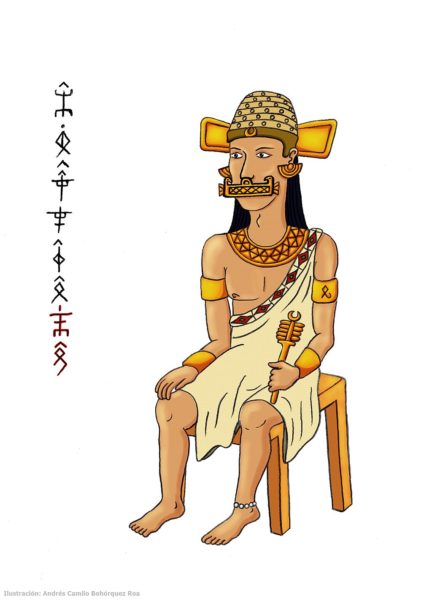
A Muisca Zipa or Chief | Own work, Andrés Camilo Bohórquez Roa [CC0]
Origin of the myth
The Legend of El Dorado originated from the Muisca people of Columbia. It started with one of the traditions of the Muisa people in which the tribal chief covers himself in gold dust and submerges himself in water as a rite of initiation. When the old chief passes on, his heir, El Dorado or ‘the golden one’ had to undergo several rituals before becoming the new zipa. One of the tradition called for the heir to spend time alone in a cave and was forbid the use of salt products.
Following this, the successor would travel to lake Guatavita, a ceremonial lake of the Musica people. The heir was stripped to his skin and covered in gold dust and set on a raft to perform another ritual. He offers precious jewels, gold jewellery and other valuable materials and trinkets to the gods by throwing them in Lake Guatavita. Muisca natives line the shores of this circular, vowing their allegiance to their new chief.
What is the Golden City of El Dorado?
The Golden City of El Dorado was believed to be an empire with tall, hovering buildings made of gold. Its streets and waterways were paved with gold with inserts of precious jewellery. The native people adorned themselves with this same precious material and the chief, was gold himself. Or rather, he bathed in gold dust. All of these were signs of a wealthy civilization-one that the explorers wanted for their own. This was a well-known tradition that was known as far as the Caribbean Sea. Attracted by stories of this city of gold, the Spaniard came to South America in search of gold. What fuelled the rumours was the capturing of a Spaniard by the name of Juan Martín de Albujar. This Spaniard claimed he was given gold taken to a city where a great Chief ruled.
Where is the Golden City of El Dorado?
El Dorado City of Gold was said to be found near to Lake Parime. Explorers searched parts of Columbia, Brazil, Venezuela and Guyana. The most famous, Sir Walter Raleigh sponsored four voyages to Guyana, where he believed El Dorado was to be found. The first trip was in the year 1579, followed by others in 1595, 1596, and 1617. Sir Walter Raleigh personally oversaw the first voyage and the last in 1617 during which one of his sons died. He believed Lake Parima was found up the Essequibo River. According to some explorers, El Dorado was found somewhere in the Pakaraima Mountains, between the Amazon River and Orinoco River. In the 1800s, Alexander Humboldt claimed that Lake Parime was Lake Amucu which is found in the North Rupununi of Guyana. Later Charles Waterton on a separate study suggested that Lake Amucu was the famed Lake Parime of the City of El Dorado. However, until date the City of El Dorado was never found and is believed to be just a myth.
Interesting tip
- The Muisca people often pointed the greedy Spaniards in the wrong directions of other warrior tribes instead of the alleged way to El Dorado City of Gold.
- There is a museum of gold called, ‘The Museum of Gold’ in Columbia of artifacts, textiles and ceramics of thirteen (13) prehistoric South American societies, including the Muisca.
- An artifact called the Muisca Raft or El Dorado Raft was acquired by the same ‘Gold Museum’ in Columbia.
The legend of the Golden City of El Dorado is not known only in Guyana but all across the world. The most truth of the stories of El Dorado was the tradition of the heir to the village being coved in gold dust as an initiation ritual. There have animated movies and live-action films made about El Dorado and books and even poems written about it. The Golden City of El Dorado is a story that has been passed down for generations, among all the ethnic groups in Guyana, adding richness to our folklore and history. Though El Dorado City of Gold was never found, some still believe that the empire lies hidden from the eye. The city was never found which leaves us to wonder if it was just a legend. Read one of the most famous poems on El Dorado below and see if you can decipher the myth of El Dorado.
by Edgar Allan Poe
Article References
- https://books.google.gy/books?id=8OBRAQAAIAAJ&pg=PA72&lpg=PA72&dq=is+el+dorado+legend+only+in+guiana&source=bl&ots=tvAQzjwJHP&sig=ACfU3U10B1d_l6sWheCGAW4SZ4YUgTnwxQ&hl=en&sa=X&ved=2ahUKEwiNporFkq7nAhWs1VkKHW2iAbsQ6AEwEXoECAoQAQ#v=onepage&q=is%20el%20dorado%20legend%20only%20in%20guiana&f=false
- https://en.wikipedia.org/wiki/El_Dorado
- http://guyanachronicle.com/2018/04/23/el-dorados-no-longer-a-legend
- https://www.poetryfoundation.org/poems/48634/eldorado-56d22a0920778
- https://www.bbc.com/news/av/world-latin-america-21062727/meet-the-muiscas-the-urban-indigenous-people-of-bogota
- https://sinchi-foundation.com/news/el-dorado-is-found-amongst-the-muisca-people/
- https://en.wikipedia.org/wiki/Muisca
- https://colombia.travel/en/blog/muisca-raft-symbol-el-dorado
- https://www.thoughtco.com/where-is-el-dorado-2136446

